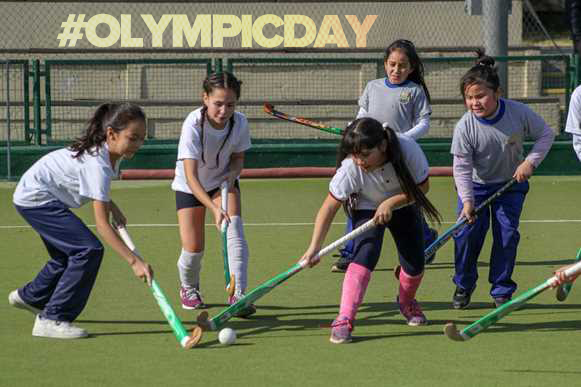
Removing all barriers to participation is the aim of a project being launched by the Chilean Hockey Federation in conjunction with Olympic Day on 23 June.
The Chilean Hockey Federation (CHF) has recognised that, when it comes to people with mental or physical disabilities, hockey is not always an easy game in which to participate. And so, to address this issue, the Federation is starting an initiative to introduce hockey to young people with physical and learning disabilities.
The initiative is being launched with four workshops across the country, where people of all abilities can join together and spend a day playing hockey. The workshops will be run by experienced coaches and all the participants – with or without disabilities – will be able to enjoy a day of fun, entertaining and educational hockey activities.
Following the launch, regular weekly training sessions will be run, offering the youngsters a place to develop their hockey talent and general motor skills, as well as offering a network for social interactions.
Outlining the reasons for laughing this initiative, the CHF says: “Through hockey, we are looking to promote and facilitate social inclusion and emotional development of people with physical disabilities as well as learning difficulties. We are also using this as a means of raising awareness among the hockey community.”
The project has committed to running hockey training sessions for children and young people with learning difficulties on a weekly basis throughout the year. The first training session will take place in Santiago, where there are already facilities that can cater for a group of mixed ability hockey players. Over time, the initiative will expand to other areas of the city and, eventually, across the country.
The sessions will initially cater for children and young adults from 10-18, an age group the CHF has identified as going through much personal and social development. Again, as the project grows and gains traction, the sessions will be increased and opened to older people.
Qualified coaches and volunteers will run the sessions, and a person with training in specialist needs will also be involved in ensuring the programme meets the emotional and physical needs of all the participants, as well as ensuring the training is run safely.
This launch event, with the four workshops, will give the whole project great visibility and awareness, something the CHF hopes will attract a wide range of people to pick up a hockey stick and join in.
“There is a real need and value in social interaction and sports activity,” says a spokesperson for the Chile Hockey Federation. “We want to encourage sports activities to be part of the personal identity of children with disabilities. Through hockey, they can develop motor and social skills, which are most important in their development. Even more importantly, we want to generate a space where people with and without disabilities can interact and develop fraternal bonds. Working together we can reach more people and get them involved in this wonderful sport of hockey.”
Original article: FIH website
